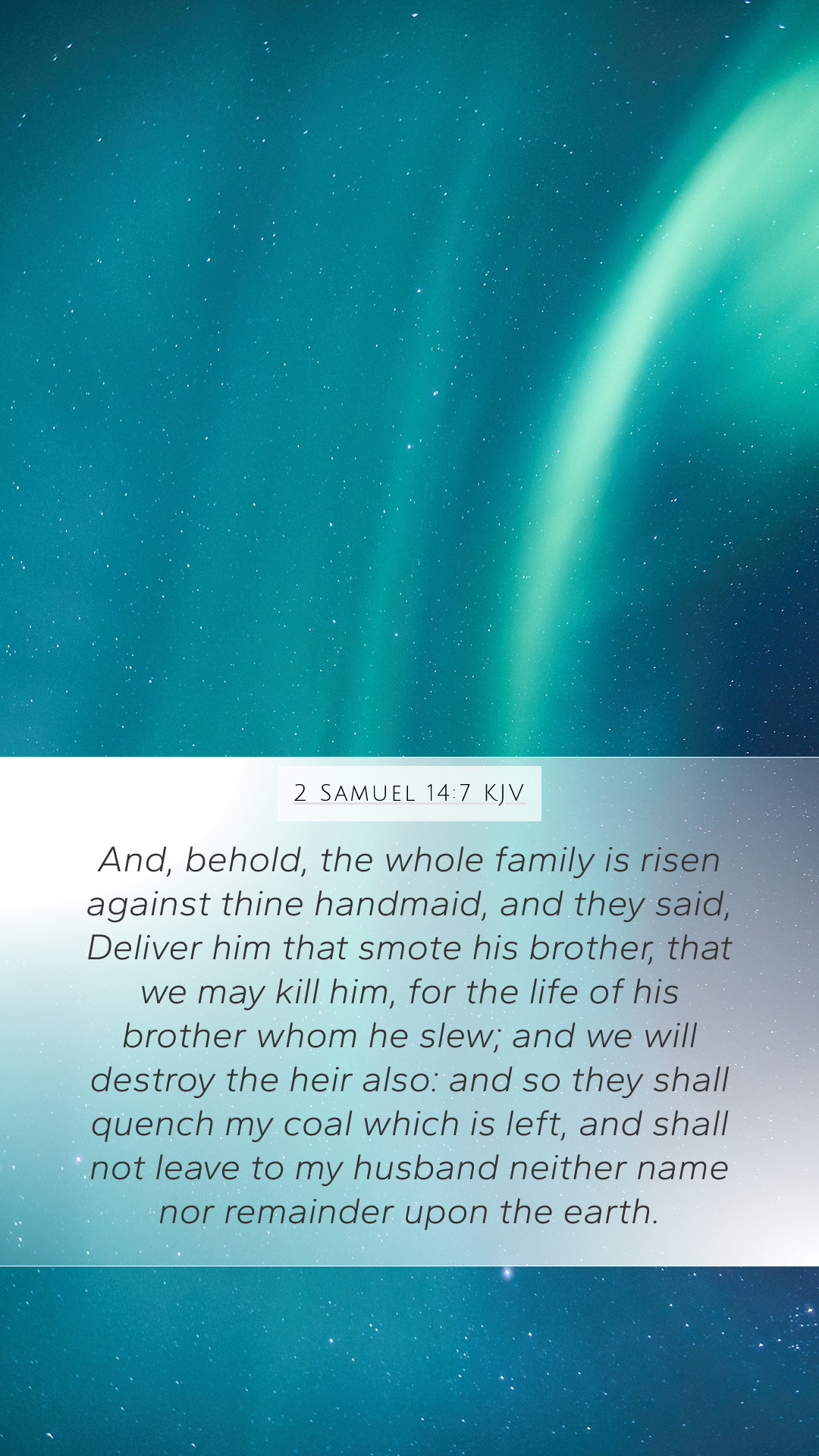Bible Verse: 2 Samuel 14:7
This verse captures a poignant moment within the narrative of King David's family, illustrating themes of justice, mercy, and the complexities of human relationships. It reads:
"And behold, the whole family is risen against thine handmaid, and they said, Deliver him that smote his brother, that we may kill him for the soul of his brother whom he slew; and we will destroy the heir also: and so they shall quench my coal which is left, and shall not leave to my husband neither name nor remainder upon the earth."
Understanding 2 Samuel 14:7
The context of this verse is crucial for a comprehensive understanding. It's spoken by a woman from Tekoah, sent by Joab to plead for Absalom’s return. This highlights themes of familial strife and the dire consequences of unresolved conflict within a family.
Bible Verse Meaning
The verse reveals a conflict where the threatened family seeks justice against Absalom for the murder of his brother, Amnon. The mention of destroying "the heir" emphasizes the desperation of the family to uphold their idea of justice while foreshadowing the potential loss of lineage and legacy.
Commentary Insights
-
Matthew Henry: He explains how the woman's plea encapsulates the heartache and bitter rivalry within David's family, indicating that unchecked vengeance leads to ruin. Henry emphasizes God’s mercy and the need for reconciliation, particularly due to the grave implications posed by Absalom's actions.
-
Albert Barnes: Barnes offers an analysis on the social implications of the family’s demand for justice. He underlines the fact that such disputes often threaten entire households and legacies. His commentary illuminates how the tensions in David's family represent broader themes of sin and redemption.
-
Adam Clarke: Clarke sheds light on the legal customs of the time, noting the practice of retribution and the societal pressure to uphold justice. His insight highlights the moral dilemmas faced by David as a father and a king in facing these familial tensions.
Key Themes Explored
- Justice vs. Mercy: The verse captures the struggle between the need for justice and the call for mercy, a common theme throughout the Bible.
- Family Dynamics: It underscores the complexities and trials of familial relationships, which is relatable and applicable to contemporary audiences.
- Consequences of Violence: The repercussions of violence and the cycle of revenge are crucial elements discussed in this context.
Applications of the Verse
Understanding and interpreting 2 Samuel 14:7 can be particularly beneficial in the following ways:
- Encouraging discussions in bible study groups about forgiveness and reconciliation.
- Providing bible study resources that help individuals apply scriptural teachings on justice in daily life.
- Offering insights into how to interpret Bible verses through the lens of historical context and personal application.
Cross References
- Genesis 4:9-10: The theme of blood vengeance and accountability.
- Exodus 21:12-14: The laws regarding murder and retribution in Israel.
- Matthew 5:38-39: Jesus’ teachings on turning the other cheek and the call for mercy over retribution.
- Romans 12:19: The New Testament perspective on vengeance and leaving justice to God.
- James 4:1-2: Insight into the causes of conflict and the cravings that lead to strife.
In conclusion, 2 Samuel 14:7 serves as a profound illustration of the themes of justice, the ramifications of familial conflict, and the importance of reconciliation. This verse, like many, prompts the reader to reflect on their understanding of conflict resolution, forgiveness, and the importance of mercy in the light of God's justice.


